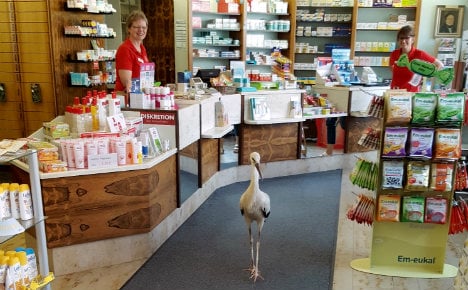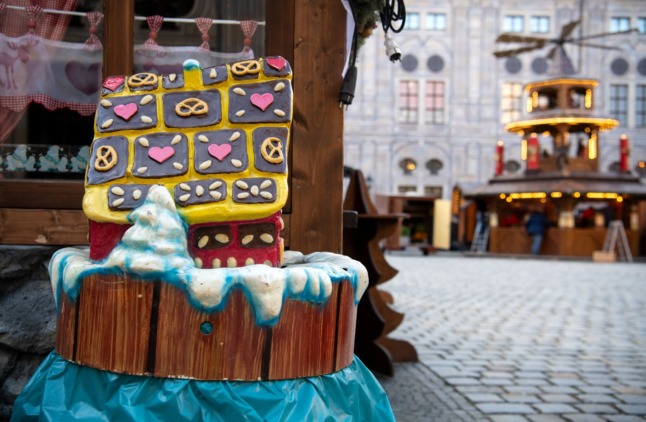Pharmacists at the Beyschlagsche Apotheke in the Bavarian district of Erlangen-Höchstadt were in for a surprise when a very unusual customer walked through the door at midday on Monday: a stork.
After leaving its nest on the roof of the pharmacy, the hungry young bird had been traipsing up and down the high street for a few hours.
Bypassing all the other shops, it finally entered the pharmacy, to the astonishment of owner Gabriele Sehring-Castelli and colleague Heike Wenisch.
But what was it looking for there? The famished and dehydrated stork was probably seeking “refuge”, as well as food and drink, Gabriele Sehring-Castelli told The Local.
After giving it a watering can full of water, the pharmacists “left it in peace”, the owner went on to say.
However, it subsequently became apparent that the stork “couldn’t fly and needed help”, Sehring-Castelli added.
A stork expert was then notified about the wandering bird, which was missing several feathers.
The most likely reason for the stunted growth of the stork’s feathers is that a few weeks after the bird had hatched, the weather was too cold and wet.
In these conditions, the feathers wouldn't have been able to form properly, ornithologist Michael Zimmermann told Bavarian Radio.
“We have already had this problem a dozen times this year.”
According to Bavarian Radio, the unfortunate bird had not been fed by its parents because it was incapable of flying.
But things are looking up for the meandering stork. The specialist took it to the Nuremberg Zoo on Tuesday, where it is currently being looked after.
Its missing feathers should grow naturally within the next year or so.



 Please whitelist us to continue reading.
Please whitelist us to continue reading.
Member comments